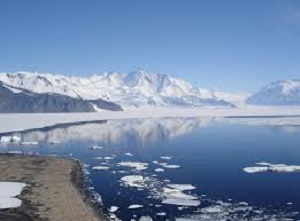In the beginning, planet Earth was a very inhospitable place with no oxygen and only single-celled bacteria as inhabitants. According to a new study, the oxygen content in the air began to increase about 2.4 billion years ago, at the same time as the global glaciation and when all continents were gathered in a single huge landmass, or supercontinent. How to explain the exact connection between these events, however, is a question that baffles the researchers according to Science daily.
“Our results also show that oxidation coincided in time with an event of global glaciation of Earth and extensive volcanism,” says Ulf Söderlund, Professor of Geology.
In the recent international study, researchers, among others, have pinpointed the timing of this so-called Great Oxidation Event — a crucial starting point in the development of life.
The results come from age dating of volcanic rocks in southern Africa, and they show that the global glaciation occurred 200 million years prior to what was previously believed.
The global glaciation meant that most of the planet was covered in ice. Such extensive glaciations are internationally referred to as “Snowball Earth.” Its latest occurrence was approximately 600 million years ago, and again this was followed by a significant increase in Earth’s oxygen content.
The study shows that the emergence of oxygen took place at a time when most of Earth’s landmasses were gathered in a single supercontinent, called Kenorland. Paleomagnetic studies show this continent extended at the equator and was largely covered by volcanic lava rocks.
Initially, the increase in oxygen in the atmosphere was not a steady process, but characterised by quite substantial fluctuations, as shown by the researchers’ analyses. The researchers link the oxygen fluctuations to a very unstable climate, which may have arisen due to the volcanic activity on the large supercontinent at the equator.
“Although the exact relationship between the oxygen rise, volcanism and global glaciation remains uncertain, with these new results, we have now achieved international consensus about what time these events affected our planet,” concludes Ulf Söderlund.
N.H.Kh

